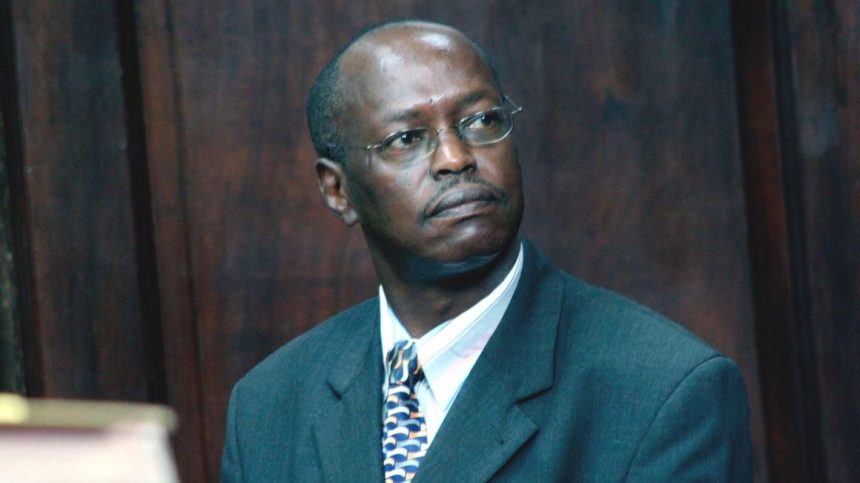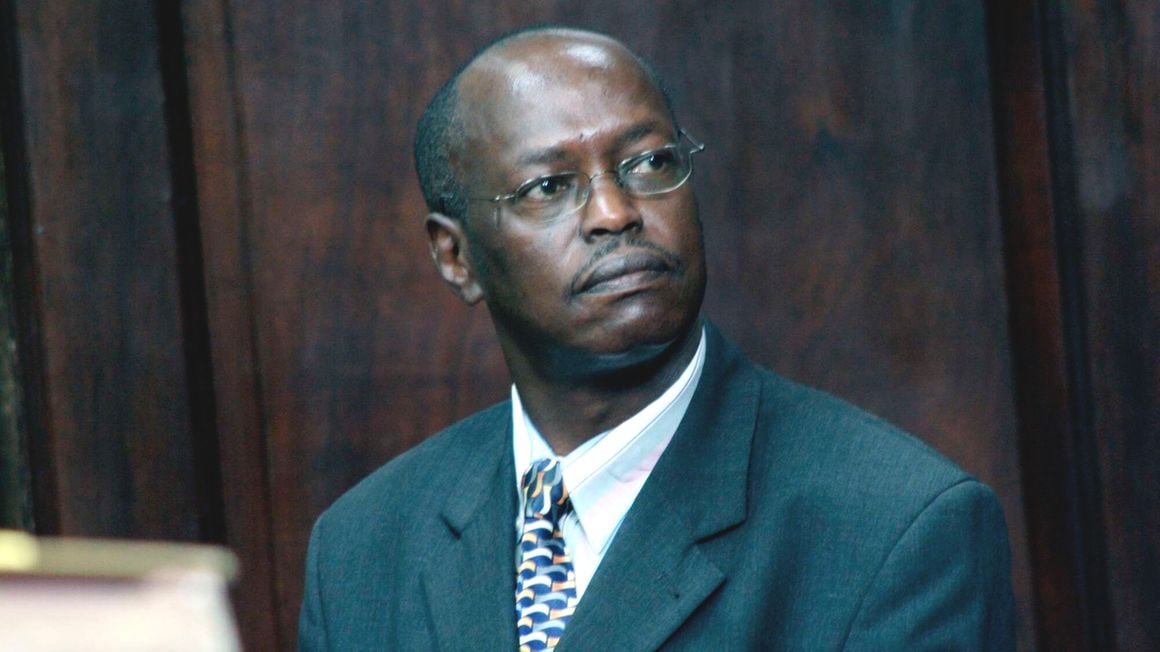Former managing director of the Kenya Medical Research Institute (Kemri) Davy Koech was sent to prison in September 2021, but he never gave up the fight for his freedom.
Koech filed an appeal at the High Court arguing that he was punished even after refunding the money he was accused of siphoning from the institute decades ago.
His hopes appeared dashed when High Court judge Esther Maina dismissed his appeal saying there was no evidence that the Ethics and Anti-Corruption Commission (EACC) had made an undertaking not to pursue him after he refunded the money plus interest.
The judge added that the only evidence of payment are letters by his advocates, which “unfortunately do not meet the mandatory provisions”.
And off he was driven to prison to start his six-year sentence after failing to pay a fine of Sh19.3 million.
Last year, he sat down and penned a letter to President William Ruto, seeking pardon through the Advisory Committee on the Power of Mercy.
“I have been in prison for the last one year serving a six-year jail term… Now at 71, and while incarcerated, my health, Sir, has deteriorated. I’ve suffered a severe stroke and I am hypertensive. Medical doctors have determined that I am neither fit to stand further trial nor am I able to instruct my legal counsel. Similarly, I’ve suffered depression, I am now stuttering in my speech and of diminished cognition,” he wrote.
“Sir, though not without fault, I have served Kenya, Africa and mankind with courage, honour and sacrifice as Kenya’s longest-serving CEO of a State corporation. I helped Kemri to raise, variously, over Sh10 billion in research funds and grants.”
Dr Koech reminded President Ruto in the letter that he still has an ongoing case and his tribulations do not end there because the anti-graft body placed caveats on all his properties, “rendering me incapable of paying the fines for the first case amounting to Sh19.6 million.”
“Your Excellency, I express profuse remorse. I’ve been punished and have suffered enough, having litigated for over 15 years, expending enormous financial resources and time,” he said.
In the letter, he said, after a thorough soul-searching, he decided to spend ‘my sunset years’ writing my memoirs and offering mentorship to students on 21st-century cures.
He had raised similar issues before Justice Maina. His situation, he said, worsened while in prison and he cannot afford to pay the fine unless the court intervenes. It was declined.
However, his pleas were heard at State House and on Tuesday last week, Dr Koech was among 37 prisoners pardoned by the President following the recommendation of the Advisory Committee on the Power of Mercy.
Troubles for the former Kemri CEO started in 2009 when he was slapped with corruption-related charges.
He was accused of diverting millions of shillings from the research organisation to his personal account between August and December 2006.
The charges against him were that he abused his office by improperly conferring a benefit upon himself by transferring money belonging to Kemri from an account held at Standard Chartered Bank, Kisumu branch to an account held at Standard Chartered Bank Yaya Centre, Nairobi branch in the name of African Medical Services Trust (Amset).
He was said to be a founder and trustee of Amset.
The Harvard-trained researcher challenged the charges, arguing that the funds he was accused of siphoning were not public money but belonged to the Centers for Disease Control and Prevention (CDC).
He denied the claims of fraud, saying that Kemri had a collaborative agreement with Amset and it had assisted in research projects.
He claimed that the arrangement would see him borrow from the Amset account, which he could access to get money for the operations at Kemri/CDC Nairobi.
EACC deal
At some point, Prof Koech and the EACC allegedly entered into a deal under which he claimed to have refunded the money in 2015 plus interest of Sh3 million.
He claimed that the anti-graft body promised not to pursue the matter after he refunded the money.
He sued the EACC in 2018 accusing the anti-graft body of illegally searching his homes and offices and seizing his properties, a move that he claimed left him unable to afford a lawyer or have a decent living.
Prof Koech joined Kemri in 1979 and became its CEO in 1989, earning a consolidated salary of Sh622,290.
And as the institution’s founder member, he said he greatly contributed to its growth to become one of the most respected research institutes internationally.




